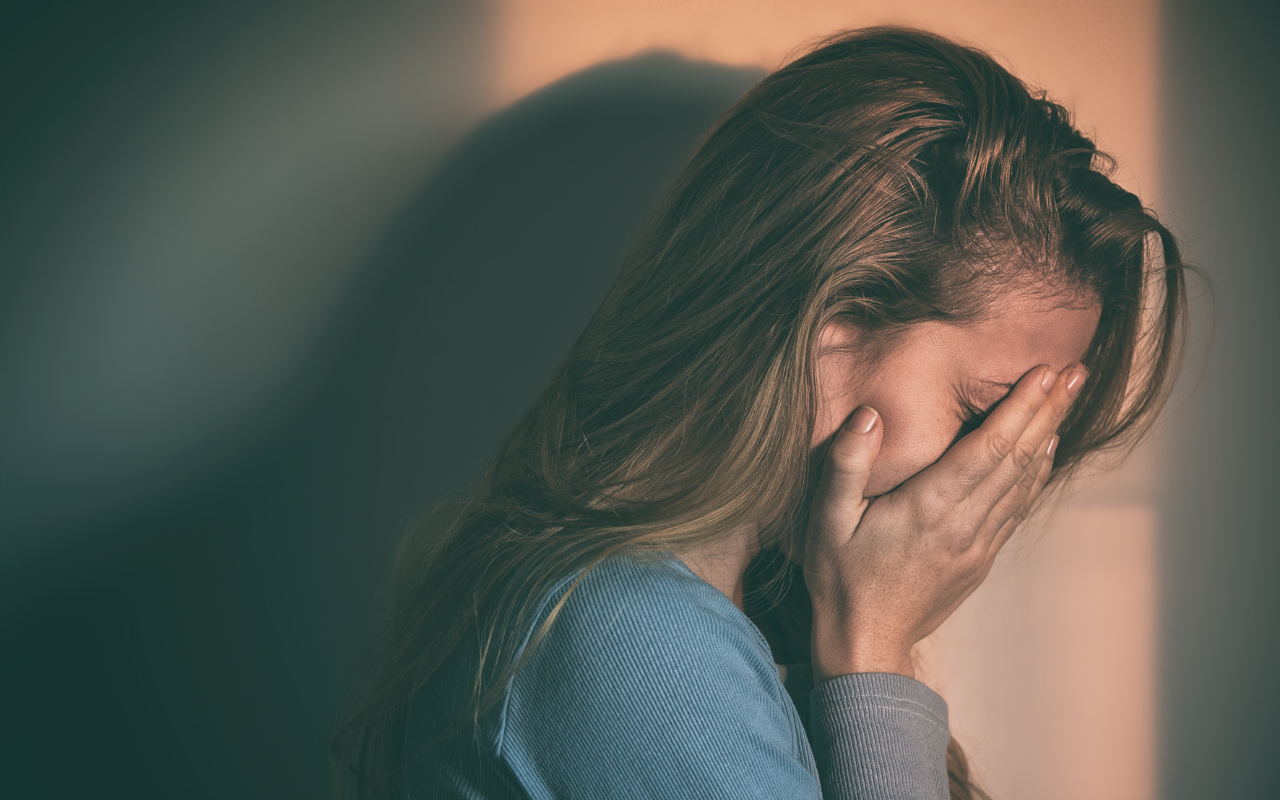Advocates are calling for a rethink to society’s approach to women’s mental health.
The impact of “gender-blind” mental health services is letting down women, who have different mental health requirements due to biopsychosocial factors, according to Head of the Department of Psychiatry at Monash University, Professor Jayashri Kulkarni.
Professor Kulkarni is the director of the HER Centre Australia, which was launched in October 2022 and integrates health services, education and research into women’s mental health.
Professor Kulkarni and her team recently presented their proposal for an alternative approach for women’s mental health at a Parliament House forum in Canberra.
They urged parliamentarians to invest more in women’s mental health research, treatment and education.
“Women’s mental health is different from men’s mental health. I am not saying that men do not suffer, of course they do. But it is different,” Professor Kulkarni told InSight+.
“Women experience twice as much depression, four times as much anxiety and about 12 times as many eating disorders,” she said.
Liptember Foundation’s 2022 Women’s Mental Health Research revealed similar statistics.
The report found one in every two women are experiencing mental illness, but alarmingly less than half (48%) are seeking help.
The survey also found that:
- 40% of women who have polycystic ovary syndrome are more likely to have a severe mental health disorder;
- 20% of women facing infertility or fertility challenges report to be at risk of suicide or self-harm; and
- 23% of pregnant women currently have perinatal depression and anxiety.
Why is women’s mental health different?
Professor Kulkarni said women’s mental health is different due to biopsychosocial factors.
“That means there are factors that are biological, there are factors that are psychological, and there are factors in social or environmental context,” Professor Kulkarni said.
Starting with a social context, she said women are more prone to experience violence, whether it’s interpersonal, domestic, emotional or physical violence in the home or outside.
Women often have lower incomes and have power differentials in terms of work structures and political representation.
“These all add up to a sense of powerlessness in a number of environmental situations, and that then impacts on mental health,” Professor Kulkarni said.
Psychological differences include many defences that women often employ, including introversion, taking blame, or ruminating.
“Some of these are defence mechanisms that have been there, not just in this woman, but in generations. And so the behavioural modelling happens as well,” she explained.
Finally, there are biological factors from the gonadal hormones such as estrogen and progesterone in the brain. Women experience fluctuations in those hormones during menstruation, pregnancy and menopause.
“They are potent brain hormones and drive … that serotonin and all the other chemistry systems in the brain as well as brain circuits, which then lead directly to mental health,” she said.

The impact of gender-blind mental health services
Dr Elizabeth Moore, President-elect of the Royal Australian and New Zealand College of Psychiatrists (RANZCP), said despite there being some gendered support services, such as perinatal mental health and eating disorder support, most services are gender-blind.
“Evidence indicates that female [patients with attention deficit/hyperactivity disorder (ADHD)] are a largely underdiagnosed and undertreated cohort.
“Many of their symptoms are overlooked due to sweeping generalisations or perceptions perpetuated by society, where women and girls have learnt to hide or mask their symptoms,” she highlighted.
“Women with a history of family violence and associated trauma also have trouble accessing safe and sensitive mental health assessment, treatment and support that incorporates trauma and violence-informed practice-based assessment,” she told InSight+.
For some women, times of great hormonal upheaval can cause significant mental health issues.
“Pregnancy, childbirth, and post partum are periods which often include challenges for women, with mental health issues presenting for the first time, or a relapse or worsening of existing conditions. Suicide is regularly reported as a leading indirect cause of maternal death,” Dr Moore said.
Dr Moore said current gender-blind treatments do not consider the hormonal causes.
“These are potent brain steroids, and in themselves create conditions like menopausal depression.
“They cause PMDD [premenstrual dysphoric disorder], which is a severe depression that about 15% of women of reproductive age experience once a month. And yet the treatments for both conditions are standard antidepressants,” Professor Kulkarni said.
In many of these cases, a hormone strategy would be more appropriate.
“It is not even included in the illness classification bible, the [Diagnostic and statistical manual of mental disorders (DSM)],” she said.
The future of women’s mental health
According to Luke Morris, CEO and Founder of Liptember Foundation, mental health research has progressed, but we are only just starting to see how this affects specialist mental health care.
“It is only recently that research has been broken down by gender and the impacts this can have on an individual,” he said.
The Liptember Foundation is focused on undertaking gender-specific mental health research that will pave the way for female-centric (or women-centric) methodologies.
“When we know better, we can do better, but right now, our publicly available mental health care options are not there yet,” Mr Morris said.
“Overwhelming” demand
Professor Kulkarni’s HER clinic has seen considerable demand since opening last year.
In this consultative, second opinion clinic, they see women who have not responded to other treatments.
Each woman has an extensive two-hour assessment where they delve into all areas of her life, including early life trauma, physical health issues, relationships, financial stressors, and life responsibilities.
“And with all that information, then we make a detailed management strategy, which goes to her as well as her treating doctor. Because that way, she can be empowered to say, ‘I like suggestion number three, let’s try that first’,” Professor Kulkarni explained.
The other benefit of this approach is that it involves the GP and also helps educate them about different treatment options.
“What we have noticed … is they (GPs) were saying things like ‘the second patient who walked into my clinic with exactly that story, I tried the same treatment that you’d suggested in patient x and it worked really well,’” she said.
Professor Kulkarni’s proposal to the Parliament House forum included a suggestion to roll out these specialist mental health clinics around Australia.
They also are urging the government for more funding for female-focused research and education for GPs, mental health clinicians, psychiatrists and the public about the best way to treat mental health conditions in women.
Experts are concerned that without adequate mental health services for women, the ripple effect across the nation could be enormous.
As Mr Morris highlighted: “Women’s mental health is not just a women’s issue.”
Subscribe to the free InSight+ weekly newsletter here. It is available to all readers, not just registered medical practitioners.

 more_vert
more_vert
I think we need to look after both genders so we can properly identify things. We need better treatments for women and men. We need a better community so we live in harmony.
One of the most telling statistics on mental health across the board is the number of such claims rejected by Workcover compared to other workplace injury claims. In Qld more than half of such claims are rejected. For woman juggling additional gender-related issues mentioned in the article, a workplace mental health injury can be severely debilitating and claim rejection for these types of injuries can add another layer of stress to already injured mental health. Further analysis of gender in mental healh injury claims would I think reveal that women are faring poorly in having their mental health taken seriously across the board. Thanks for putting it on the agenda.
Finally, some common sense.
It would almost seem as though women need a “Voice” in the Constitution to right centuries of bias and inequality! If that were the purpose of the Constitution.